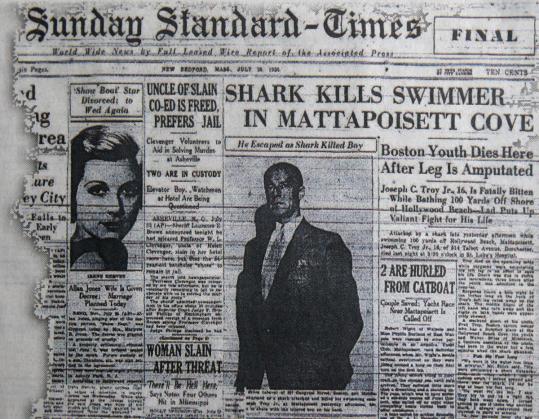Shark mania has taken hold on Cape Cod. Each year we hear more and more reports of shark sightings on the Outer Cape beaches. It’s a sensational story that the public just can’t get enough of. But a shark attack in Buzzards Bay? It has happened. In fact, the only confirmed human fatality by shark attack in Massachusetts’ history happened right across the Bay in Mattapoisett. In 1936.
There’s a reason why there hasn’t been a fatal shark attack around here in 75 years: They’re rare. That’s partly because the instances of contact between humans and large sharks are relatively rare. People just aren’t a staple food on a shark’s menu. Seals, however, are another matter. Sharks love to eat seals.
Most scientists seem to agree that the recent increase in great white shark visits to the Outer Cape is a direct result of the increase in the seal population in those same waters. The Cape Cod National Seashore has become something of an all-you-can-eat buffet for great whites from up and down the Atlantic seaboard. Cooler North Atlantic waters that seals prefer, but close enough to the warmer, Gulf Stream waters that sharks thrive in. It’s a perfect feeding environment.
Water temperatures may also have a lot to do with why there are so few sightings of these big sharks in Buzzards Bay. Seals do thrive in these waters, but primarily during the winter months when the water is cold. This is precisely the time of year when most sharks have moved on to warmer waters – and when there are fewer people on the water to observe any sharks that may be hanging around.
As the water warms in the spring and summer, our harbor seals move to cooler areas. The sharks arrive and find that the food has moved elsewhere, so they follow.
The takeaway? You’re much more likely to be injured watching TV on your living room sofa than you are by a shark attack while swimming in Buzzards Bay. It does beg the question of why cool-water swimmers wear wet suits that make them look like seals. But that’s a subject for another day.

